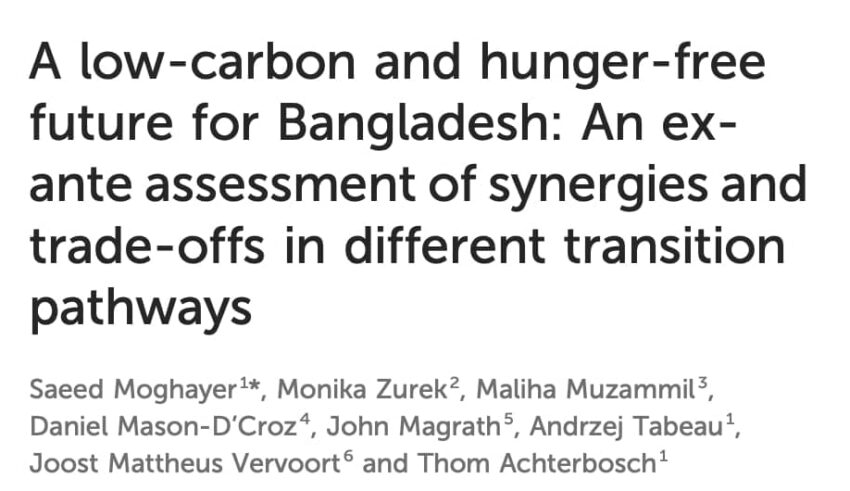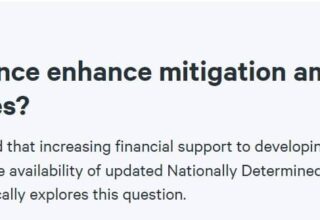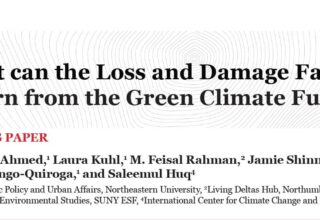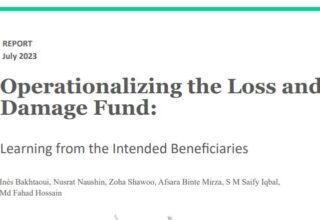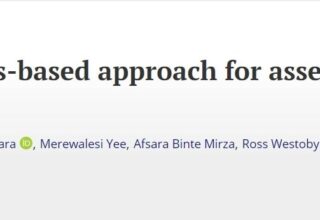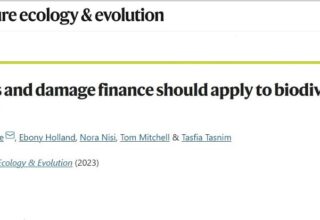Feeding and nourishing a growing global population in Bangladesh is a major challenge in a changing climate. A multi-level participatory scenario approach with corresponding modeling and decision support tools is developed and applied to support decision-makers in developing scenario-guided enabling policy for food security in the future under climate change. The results presented in this paper show how, under different scenarios, the agri-food system may transform in the next decade as a result of the interaction of intertwined institutional, technological, and market drivers in Bangladesh. For scenario building, the food and agriculture community was brought together with the climate and energy community. We also experimented with different ways to bring voices that are often less included in policymaking, such as poor rural communities and youth. The scenario quantification is performed by MAGNET, a GTAP-based multi-sector and multi-region computable general equilibrium model. The simulation results depict a comprehensive picture of corresponding and varied pressures on agricultural resources and opportunities for economic development and trade in Bangladesh. Finally, we did an ex-ante assessment of the trade-offs and synergies between zero-hunger- and zero-emission-related targets within the Bangladesh Sustainable Development Goals (SDGs) under the developed scenarios.
The Full Publication is available Here

